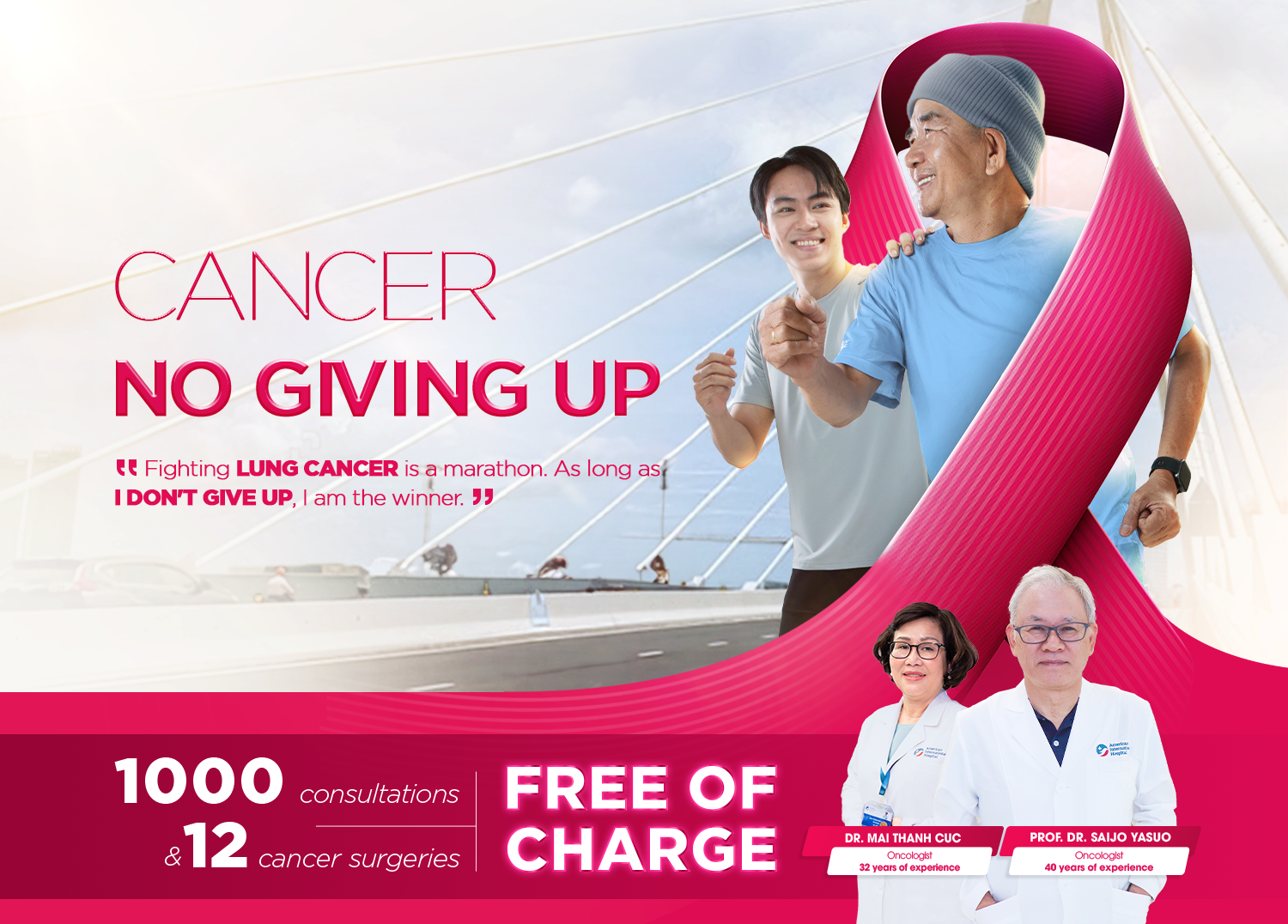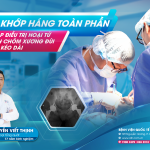Thông báo
Vui lòng điền vào thông tin bên dưới
Khẩn cấp
LUNG CANCER: EARLY SCREENING, TIMELY AND EFFECTIVE TREATMENT
The lungs play a vital role in the respiratory system, allowing the body to breathe and receive oxygen. Lung cancer occurs when abnormal cells in the lungs grow uncontrollably, typically developing from the mucous membrane of the airways. These cells do not develop into healthy lung tissue but instead divide rapidly, forming tumors that interfere with the lung function.
According to 2022 statistics, lung cancer was the most commonly diagnosed cancer globally, with approximately 2.48 million new cases, accounting for 12.4% of all cancer cases worldwide. It is also the leading cause of cancer mortality, responsible for around 1.8 million deaths - equivalent to 18.7% of total cancer deaths globally. In Vietnam alone, lung cancer ranked as the second most common cancer, with 24,426 new cases and 22,597 deaths in 2020.
Symptoms of Lung Cancer:
Detecting lung cancer at an early stage can significantly improve the chances of successful treatment and cure. At this stage, cancer cells have not yet metastasized to other organs, making treatment less costly, recovery faster, and reducing the harmful effects of radiation and chemotherapy.
Lung cancer often does not present clear symptoms in its early stages. As the disease progresses, possible symptoms may include:
Persistent cough
Coughing up blood
Shortness of breath
Chest pain
Hoarseness
Unexplained weight loss
Bone pain
Headache
Who Should Get Screened for Lung Cancer?
To reduce risks from late-stage detection, lung cancer screening is recommended for the following groups:
People aged 50 and above with a smoking history
People with a significant history of smoking (1 pack a day in 20 years or longer), and still currently smoke.
People who have quit smoking within the last 15 years.
People with a family history of lung cancer or who work in hazardous environments such as quarries, cement or rubber factories.
People who are exposed to secondhand smoke.
How to Prevent Lung Cancer?
Following these methods to prevent yourself and family from lung cancer:
Avoid smoking: Smoking cigarettes is a leading cause of lung cancer, accounting for 85% of all cases.
Avoid secondhand smoke: Non-smokers exposed to smoke are also at risk of lung cancer.
Protecting the lungs from polluted air: Air pollution is a significant risk factor, especially in East Asia
Maintaining a healthy lifestyle: A balanced diet, regular exercise, and maintaining a healthy weight help strengthen your immune system
Undergo regular lung cancer screening: Annual low-dose CT scans are recommended for those at high risk
Current Methods of Lung Cancer Treatment
Treatment of lung cancer depends on multiple factors such as the type of cancer (non-small cell or small cell lung cancer), the stage of the condition, the patient’s general health status and their preferences. The current modern treatments tend to incorporate various methods to personalize treatment for each patient. Common treatment includes:
1. Surgery
Applicable for early-stage lung cancer, without metastases.
The goal is to completely remove the tumor and a part of the surrounding lung tissue.
The most common types of surgeries:
Wedge resection or Segmental resection
Sublobar resection
Lobectomy: more preferred over pneumonectomy, if anatomically feasible and negative margins can be achieved
Video-assisted thoracoscopic surgery (VATS) or Robot-assisted thoracoscopic surgery: minimal invasive procedure, allowing short hospitalization duration, less pain and quick recovery, though requiring thorough patient selection.
Pneumonectomy: removal of an entire lung
2. Radiation Therapy
Applies the use of high-energy ray (traditional X-Ray or proton beams) to eliminate cancer cells.
Applicable for:
People not eligible for surgery
Combines with chemotherapy to improve treatment effectiveness
Symptomatic treatment such as pain relieving due to bone or brain metastasis.
3.Chemotherapy
Involves intravenous or oral drugs to destroy cancerous cells.
Typically applicable for various stages and combined with other methods to:
Shrink tumor before surgery or eliminate cancer cells post operatively
Manage advanced or inoperable lung cancer
Control metastatic symptoms.
Combining with radiation therapy or applying after operation may reduce the risk of recurrence.
4. Targeted therapy
Indicated for patients with specific genetic mutation (EGFR, ALK, ROS1, KRAS...).
Drugs are targeted at abnormal proteins resulting from the production of cancerous cells, preventing tumor development.
Fewer side effects compared to traditional chemotherapy
5. Immunotherapy: A notably advancement in lung cancer treatment, bringing hope for patients, improving chance of living and bringing the best possible outcome for individuals.
Helps the immune system recognize and destroy cancerous cells.
Effective for certain advanced non-small cell lung cancer (NSCLC).
Common drugs: Pembrolizumab (Keytruda), Nivolumab (Opdivo), Durvalumab (Imfinzi), Atezolozumab (Tecentriq), etc.
6. Palliative care – focused on controlling symptoms and enhancing quality of life for patients in advanced stages.
Manages pain and reduces symptoms such as difficulty breathing and fatigue
Improves quality of life and mental health for the patient and their family.
FREE CANCER SCREENING AT AMERICAN INTERNATIONAL HOSPITAL (AIH) A TEAM OF JAPANESE PROFESSORS
To control and help control cancer cases in Vietnam, American International Hospital (AIH) is officially launching the “1,000 Free Consultations and 12 Free Surgeries for Cancer Patients” Program in 2025. This initiative aims to support individuals diagnosed with or suspected of having breast, thyroid, lung, or gastrointestinal cancer, giving them access to high-quality medical services right here in Vietnam. Participants will receive comprehensive health evaluations, personalized treatment consultations, and guidance on next-steps in their journey. Notably, this program will help 12 cancer patients with indications for surgery receive free surgical treatment.
To join the “1,000 Free Consultations and 12 Free Surgeries for Cancer Patients” Program at AIH in 2025, please register via the dedicated cancer webpage at ungthu.aih.com.vnor contact our Hotline: (028) 3910 9999.
--------------------
For checkup and consultation at AIH:






































































Để lại bình luận